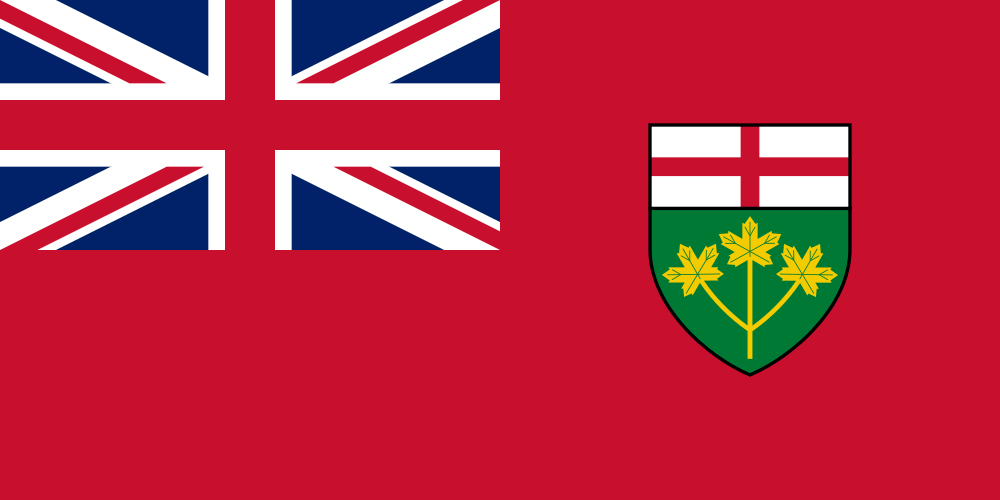On January 3, 2022, the Ontario government announced a number of restrictions in response to climbing COVID-19 case numbers and increased hospitalizations. Effective January 5, 2022, the province is temporarily returning to a modified version of its previous Step Two of the Roadmap to Reopen under O. Reg. 263/20. The province will return to Step Two for a minimum of 21 days (until January 26, 2022), at which point the restrictions will be evaluated.
Below is a summary of the restrictions in effect during a modified Step Two, and a review of the most recent isolation rules and guidance on polymerase chain reaction (PCR) testing.
COVID-19 Restrictions in Effect as of January 5, 2022
Some of the time-limited measures in the move to Step Two include the following.
Mandatory Remote Work
For the duration of this lockdown, businesses and organizations must allow employees to work remotely “unless the nature of their work requires them to be on-site.”
Gathering Limits
For the duration of this lockdown, indoor social gatherings are limited to 5 people. Outdoor social gatherings are limited to 10 people.
Capacity Limits
For the duration of this lockdown, the following restrictions are in place.
- Organized public events taking place indoors will have a limited capacity of 5 people.
- Indoor weddings, funerals, religious services, rites and ceremonies are limited to 50 percent capacity, per room. Outdoor services have limited capacity, to the extent that attendees can maintain physical distancing of 2 metres. Social gatherings tied to these services must abide by social gathering limits.
- Retail settings are limited to 50 percent capacity. Line-ups within shopping malls must allow for physical distancing between patrons.
- Personal care services must adhere to restrictions and limit capacity at 50 percent.
- Public libraries must limit their capacities to 50 percent.
Business and Service Restrictions
For the duration of this lockdown, the following restrictions are in place.
- Food courts within retail settings must close.
- Personal care services like saunas and oxygen bars must close.
- Most indoor meeting and event spaces must close. Outdoor meeting spaces may remain open with restrictions.
- Indoor dining in facilities like restaurants and bars must end. Outdoor dining may continue with restrictions. Food delivery and takeout may continue to operate.
- Theatres, concert venues and cinemas must close. Rehearsals and recorded performances may operate with restrictions.
- Museums, zoos, landmarks, botanical gardens, festivals and other attractions must close. Outdoor attractions are permitted with restrictions, and spectator capacity is limited to 50 percent.
- Indoor horse racing tracks, and similar venues must close. Outdoor venues may continue to operate with restrictions and they may allow spectators up to 50 percent capacity.
- Indoor sport and recreational fitness facilities must close. These facilities may only open for certain professional and elite amateur sport leagues. Outdoor sport and recreational facilities may remain operational with restrictions, but the number of spectators may not exceed 50 percent occupancy.
School Closures and Accommodations for Child Care
Remote learning will begin for children in all publicly funded and private schools until at least January 17, 2022. Schools may remain “open for child care operations, including emergency child care, to provide in-person instruction for students with special education needs who cannot be accommodated remotely and for staff who are unable to deliver quality instruction from home.” Free emergency child care will be made available for school-aged children of “eligible frontline workers” and of health care workers.
Pausing Select Surgeries
For the duration of this lockdown, hospitals must pause non-emergent and non-urgent surgeries and procedures to preserve hospital resources.
Isolation Guidelines
On December 30, 2021, the province announced new isolation rules for fully-vaccinated individuals. Fully-vaccinated individuals, and children under the age of 12, who have COVID-19 will be required to self-isolate for at least 5 days after their symptoms begin. Under prior guidance, fully-vaccinated individuals were to self-isolate for 10 days. Presently, only individuals who are “unvaccinated, partially vaccinated or immunocompromised” must isolate for 10 days.
The province’s guidelines provide that, self-isolation for fully-vaccinated individuals may now end if symptoms improve for at least 24 hours, after the 5 isolation days have elapsed. After self-isolation comes to an end, individuals must continue to abide by public health precautions by wearing masks and physical distancing.
Under the updated rules, household contacts of a fully-vaccinated individual who has COVID-19 must also isolate. Other close contacts who do not share a residence with the person with COVID-19 will not have to isolate, but they are asked to self-monitor for 10 days.
COVID-19 Testing Guidelines
As of December 31, 2021, only eligible individuals (i.e., “high-risk individuals who are symptomatic and/or at risk of severe illness from COVID-19”) will have access to publicly-funded PCR testing. Under the Ontario government’s new guidelines, publicly-funded PCR testing is no longer recommended for individuals with mild symptoms, who do not meet the eligibility requirements. Eligible individuals for PCR testing include:
- symptomatic individuals, including high-risk individuals, like hospital patients;
- high-risk contacts and individuals exposed in confirmed or suspected outbreaks in high-risk settings;
- individuals who are at risk of severe illness from COVID-19; and
- workers and residents in high-risk settings who are asymptomatic.
These new guidelines also state that PCR testing is not needed to confirm a positive rapid antigen test. With these testing guidelines, some employees who may have previously provided negative PCR tests for work-related reasons may no longer be able to do so. Employers do not have a legal basis to require proof of a COVID-19 test for employees to be eligible for COVID-related leave in Ontario.
Expansion to the Ontario Business Costs Rebate Program
The Ontario government also announced an expansion to the Ontario Business Costs Rebate Program, which aims to support small businesses impacted by closures and capacity limits. Eligible businesses that have reduced their capacities or closed will receive rebate payments for portions of the amounts they paid towards property taxes and energy expenses during these closures and periods of reduced capacity. The applications for the program and list of eligible businesses will be available at a later date. Eligible businesses will be entitled to:
- a rebate payment equivalent to 50 percent of their costs, if they were required to reduce capacity to 50 percent; or
- a rebate payment equivalent to 100 percent of their costs, if they were required to close for indoor activities.
For additional support, as of January 1, 2022, the Ontario government has set aside up to $7.5 billion to allow “Ontario businesses to make payments for most provincially administered taxes” for six months without interest or penalties.
Key Takeaways
Nearly two years after the start of the pandemic, Ontario continues to implement fluctuating restrictions. While this latest set of circumstances may feel discouraging, it is also a reminder that employers may need to proceed with prudence when implementing policies and practices regarding COVID-19.
Ogletree Deakins will continue to monitor and report on developments with respect to the COVID-19 pandemic and will post updates in the firm’s Coronavirus (COVID-19) Resource Center as additional information becomes available. Important information for employers is also available via the firm’s webinar and podcast programs.
Michael Comartin is a partner in the Toronto office of Ogletree Deakins.
Gloria Ilunga is 2021 graduate of Osgoode Hall Law School, and she is an articling student in the Toronto office of Ogletree Deakins.





